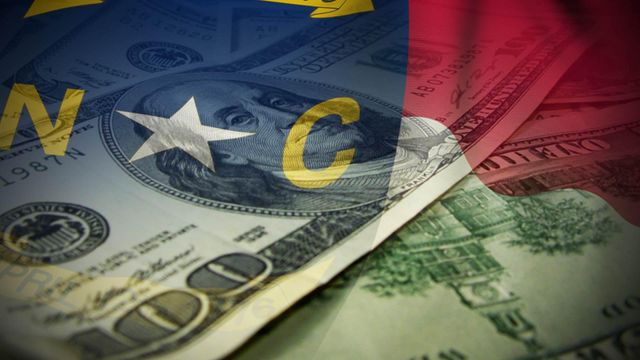NC House panel backs next year's budget changes
House budget-writers have recommended changes to the spending plan for North Carolina state government next year that ease school district funding reductions and give public employees and teachers a small bonus four years after their last pay increase.
Posted — UpdatedThe measure, approved by the House Appropriations Committee on a voice vote, also sets aside $50 million to respond to conflicts with federal agencies involving adult care home residents with mental illness and for those that need help with bathing and dressing.
The budget adjustment plan for the year starting July 1 would spend 1.7 percent more than the legislature provided for the coming year in the two-year budget approved last year.
About $232 million of the extra revenue comes from tax collections that exceeded projections. Lawmakers also took $30 million out of the One North Carolina Fund, which is used to recruit businesses to locate or expand in the state.
Another $62 million came from the state retirement system. Lawmakers say they put too much into the system last year.
The State Employees Association of North Carolina on Tuesday began running radio ads on Raleigh stations that criticized the GOP plan. The group criticized Republicans for refusing to provide a 1.9 percent cost-of-living increase for retirees.
SEANC executive director Dana Cope said GOP leaders had promised they would use the money set aside in the two-year budget and no longer needed to keep the retirement system financially sound next year for the retiree payments.
"It's a broken promise," Cope said in an interview. "That's not right."
Rep. Harold Brubaker, R-Randolph and the committee's senior chairman, said budget-writers believe the money needs to be put back in the budget for other items.
The proposed House budget spends $631 million less than what Democratic Gov. Beverly Perdue proposed earlier this month.
Perdue wants a temporary 0.75-cent increase in the sales tax rate that would generate $820 million for the coming fiscal year. Republicans are calling for no such widespread tax or fee increases and argue that people can't afford to send more money to Raleigh amid a slowly recovering economy.
The Republican-controlled legislature last year let a temporary penny increase approved in 2009 by Perdue and the then-majority Democrats expire.
"When you are in the economic times that we have, raising taxes is not the appropriate thing to do," said Rep. Nelson Dollar, R-Wake, a committee co-chairman.
But House Democrats accused Republicans of spending on the cheap again in the name of faux fiscal responsibility by refusing to consider finding more revenues.
"I really think that it's a cop-out to say that we're broke," said Rep. Verla Insko, D-Orange. "There are all kinds of ways we have never discussed that the public would support in the way of revenue enhancement."
Republicans dared Democrats to put their name to a bill that would raise taxes – a risky proposition in an election year. House Democrats have said it's up to GOP leaders, not them, to determine what form new revenues might take.
The full House was expected to debate and vote on the budget adjustments Wednesday and Thursday. The Senate will make its own changes and work out a compromise to present to Perdue. She vetoed the spending plan last year, but the veto was overridden.
Republican leaders proposed one-time $250 bonuses to state employees, teachers and other public-school workers next year, rather than the recurring salary increases that Perdue wants.
Brubaker said they didn't want to use one-time funds at their disposal on permanent salary increases. The workers also would receive an extra week of accumulated vacation.
The bill cuts the amount school districts have to return to the state next year from $503 million to $170 million. Republicans pointed out that the level is less than the more than $300 million in so-called "mandatory reversions" that districts faced the last time Democrats drew up the budget two years ago.
Many Democrats believe the reduction only keeps the status quo for public school spending because it makes up for expiring federal education spending money.
"It doesn't repair the damage, and standing still is going backward effectively," said Rep. Rick Glazier, D-Cumberland.
The House plan includes the creation of a $50 million "Transitions to Community Living" fund, about $10 million of which would be used to respond to findings by the U.S. Department of Justice that the state's reliance on adult care homes to house people with mental illness violates the Americans With Disabilities Act.
Dollar said the $10 million is considered the first payment over several years to help move residents of adult care home to community living arrangements, including a rental assistance program.
The rest of the money, according to Dollar, would be used in part to improve adult care home reimbursement rates to care for residents as federal and state regulators work to streamline eligibility standards for personal care services.
Another $10 million is earmarked for worker retraining programs at community colleges.
• Credits
Copyright 2024 by WRAL.com and the Associated Press. All rights reserved. This material may not be published, broadcast, rewritten or redistributed.






